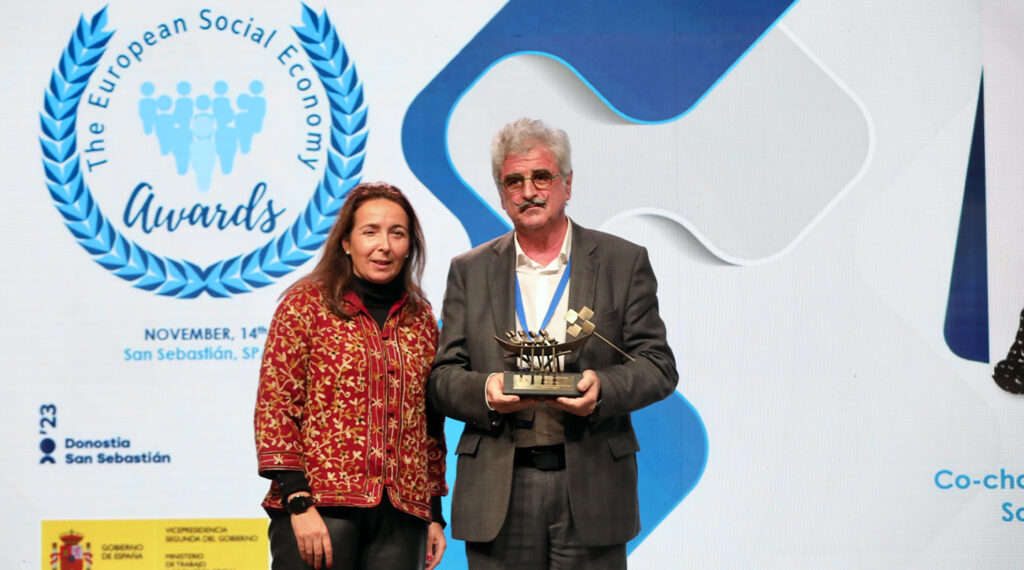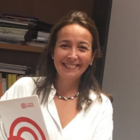Boosting the social economy: Insights from the Spanish EU Presidency event in San Sebastian

The Spanish Presidency of the Council of the European Union made social economy and “building an economy at the service of people and the planet” one of its strategic priorities. Proof of this has been the “European Conference on the Social Economy: People, Planet, Action”, organised by the Ministry of Labor and Social Economy of the Government of Spain from 13-14 November in Donostia – San Sebastián, the Spanish Capital of the Social Economy 2023, in close collaboration with Social Economy Europe (SEE), on whose board of directors Philea sits as a member with Fundación ONCE.
Over 500 representatives from the social economy sector and local, regional, national and EU policymakers gathered in San Sebastian. The opening ceremony of the Summit was attended by the European Commissioner for Employment and Social Rights, Nicolas Schmit, who stressed that what is at stake is the economy of the future – a more sustainable economy that strengthens resilience.
During these two days the conference focused on integrating the social economy in efforts to strengthen Europe as a whole by enhancing the visibility of the social economy, developing skilled labour, supporting green and digital transitions, engaging youth, and supporting market access and the introduction of new finance models – such as social impact investment – all amid important global challenges.
Philea and Fundación ONCE played key roles at this event: Hanna Surmatz from Philea discussed existing and new initiatives around creating a single market for public good, referring to the new European Philanthropy Manifesto, and Lourdes Marquez from Fundación ONCE highlighted the enormous contribution of foundations to the social economy in the framework of the digital transition, with examples from Fundación ONCE, the Spanish Association of Foundations and Philea.
To put the finishing touch on the Summit, the second edition of the biannual Social Economy Europe Awards was held. Twelve finalist organisations received awards in four different categories. Fundación ONCE won awards for two of its programmes: training and digital inclusion of People with Disabilities “Por Talento Digital”, and “Radia” for women with disabilities. With these projects, Fundación ONCE aims to advance the digital skills of EU citizens. By 2030, the EU intends for 80% of those aged 16-74 to have adequate digital skills, yet projections on the Commission’s first report on the State of the Digital Decade show that only 59% will achieve this under current conditions, hence more hands on deck are needed to close existing gaps in digital training.
In addition, institutional awards were given to policymakers including to the the Vice President of the Social Economy Intergroup of the European Parliament, Patrizia Toia.
The Spanish EU Presidency has been at the forefront in promoting the social economy, making it clear that the social economy is a crucial part of the EU’s socio-economic landscape, as it represents 8% of its GDP with 2.8 million social economy organisations providing 13.6 million jobs throughout the Union. Within the social economy we in the foundation sector represent an estimated 186,000 foundations and philanthropic organisations that work to improve the lives of people, communities and the planet.
And this has also been recognised by the Council of the EU with the adoption, on 27 November, of the Recommendation on promoting enabling frameworks for the social economy, to support its role in fostering social inclusion and access to the job market. The recommendation aims to boost the role of the social economy, explicitly mentioning the foundation sector as one of the four main families of the social economy which supports social inclusion and integration of disadvantaged groups, such as people with disabilities, into the labour market. The recommendation calls on Member States to provide for more enabling frameworks for the sector including better access to funding and overcoming barriers to cross-border philanthropy .
Social economy entities deal with several of the greatest challenges facing our society, particularly in terms of labour and social integration, as well as social cohesion, in addition to green and digital transitions. However, policymakers and the sector can still do a lot to further develop the social economy, both at national and EU levels.
Now, Member States will have two years to adopt or update their national strategies regarding the social economy, an opportunity that we as the philanthropy sector must use to include our Manifesto recommendations in these national strategies. We also have to demonstrate that the philanthropy and wider social economy sectors offer a unique value set that centres people and the planet over a pure profit focus.
As Fundación ONCE, we will continue working in collaboration with Philea, Social Economy Europe (SEE) and other relevant actors to move towards an increasingly stronger and more sustainable social economy and philanthropy sector in Europe.
On 1 January 2024, Belgium – another Member State with a long tradition of supporting the social economy and philanthropy sectors – will take over Spain as the holder of the rotating EU Presidency. A Presidency conference is foreseen In Liege in mid-February, which will be another opportunity to highlight the important role that foundations play in our economies and, most importantly, within our societies.
Authors

